How to Conduct a Comprehensive HubSpot Audit in 2026
In the ever-evolving world of digital marketing, staying on top of your game is crucial. An effective HubSpot audit is an excellent way to ensure your business is making the most of its marketing, sales, and service efforts. But how do you conduct a thorough audit that will help you optimize performance and stay ahead of the competition?
This blog post will guide you through the entire process, providing actionable steps and insights to help you transform your HubSpot account into a well-oiled machine. Are you ready to unlock your HubSpot marketing portal's full potential?
Short Summary
-
Conduct a thorough HubSpot audit annually to maximize performance and ensure teams have the relevant information.
-
Set goals, gather data, and organize resources prior to conducting an audit for desired results.
-
Track progress by monitoring key performance indicators, setting clear objectives & using data for informed decisions.
Importance of HubSpot Portal Audit
Performing an audit of your HubSpot portal is essential for any user who aims to fully leverage their HubSpot subscription. This process typically focuses on enhancing the performance of the CRM system, conversion pathways, programmable automation, and the clarity of reporting. It's important to stay abreast of product updates to avoid complications during any transitions within the HubSpot portal.
A thorough examination of your HubSpot portal does more than just assess the efficiency of your marketing funnel, lead nurturing strategies, sales procedures, content, and overall user experience. It also pinpoints potential areas for improvement and ensures that the platform remains streamlined and orderly.
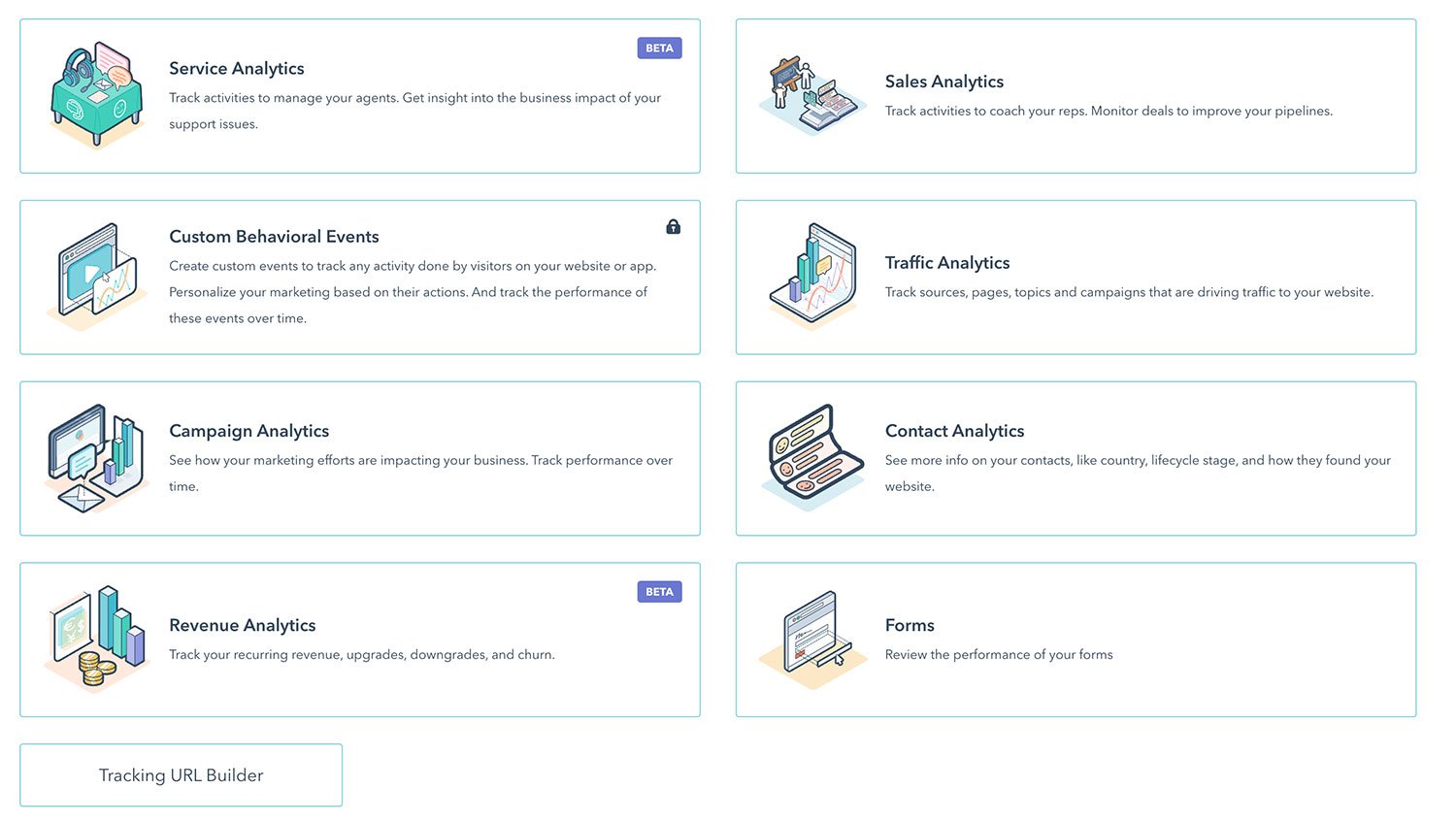
By following a well-structured HubSpot portal audit checklist, you can systematically review various aspects of your HubSpot portal account, such as managing contacts, analyzing deals, and optimizing properties.
So, why wait? Embark on your free HubSpot audit and journey and uncover opportunities to boost your marketing, sales, and service efforts.
Benefits of HubSpot Audit
A comprehensive HubSpot audit provides several key benefits, including identifying areas for improvement to enhance website performance and effectiveness. This includes strategies to lower bounce rates, improve exit and conversion rates, and optimize processes for lead generation, nurturing, and sales efficiency.
It's also crucial to maintain a well-organized and clean contact list to avoid issues such as exceeding contact limits, messaging opted-out contacts, or harming your email sending reputation. Segmenting contacts into personas and conducting a thorough content review of contact records allows for more effective personalization. This segmentation improves understanding of customer traits and fosters better collaboration across teams.
Executing a thorough HubSpot audit ensures that your marketing, sales, and service departments are equipped with the most current and relevant information and tools necessary for their success.
Frequency of HubSpot Audits
The recommended frequency of conducting HubSpot audits varies based on your organization's size and the intricacy of your analytics portal, but typically, an annual audit is beneficial. Routine audits are essential to verify the optimal functioning of your HubSpot portal and to ensure that all data is up-to-date and precise.
Maintaining regularity in HubSpot audits allows for the early detection of any potential problems, enabling timely modifications to maintain the effectiveness of your marketing, sales, and service initiatives.
Preparing for Your HubSpot Audit
Before diving into and completing the audit process, it's essential to lay the groundwork by setting specific goals and outcomes, gathering pertinent data, and organizing resources. By clearly defining your audit objectives and gathering all necessary information, you can ensure a comprehensive and successful audit that will yield actionable insights and improvements.
So roll up your sleeves and get ready to uncover hidden treasures within your HubSpot portal!
Setting Goals
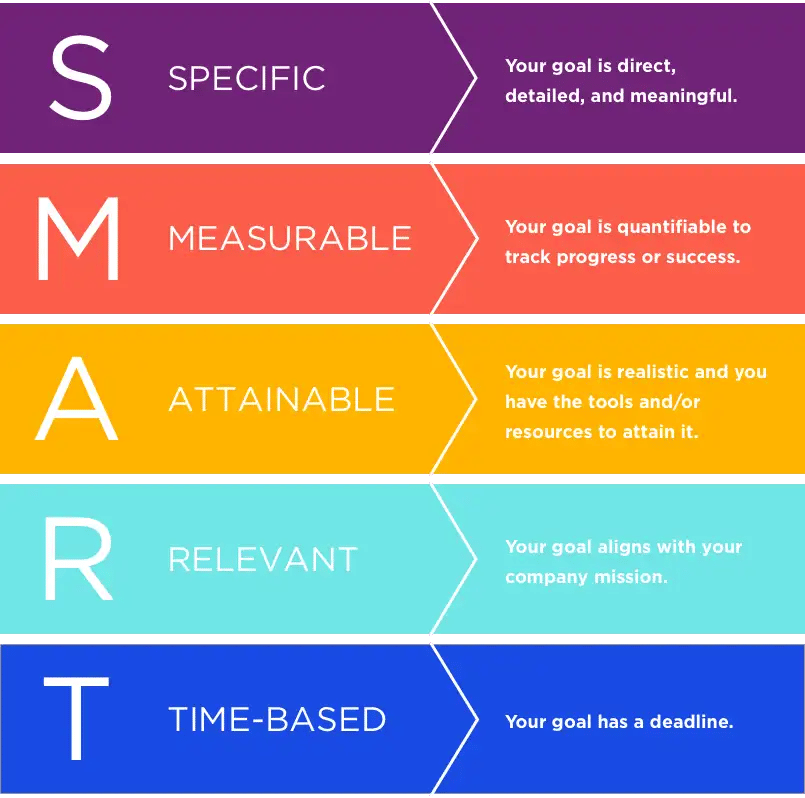
Establishing clear objectives prior to initiating a HubSpot audit is essential to achieve meaningful and advantageous results. Determine the primary efficiencies and improvement areas to focus on, targeting goals like enhancing current processes, ensuring effective platform use, and achieving growth targets.
When you have well-defined objectives, your audit activities can be strategically aligned with your broader business goals, thereby optimizing the value derived from your HubSpot audit portal.
Gathering Data
Accumulating the requisite data is a critical step in conducting a thorough and precise HubSpot audit. This involves compiling information related to your HubSpot account, encompassing contacts, leads, deals, properties, website traffic, landing pages, blog posts, lead scoring models, workflow automation, deal pipelines, pipeline automation, sales pipeline reporting, forecasting accuracy, conversion rates, and sales team performance.
With all pertinent data readily available, you can make well-informed decisions, pinpoint areas needing improvement, and drive towards enhanced outcomes.
Organizing Resources
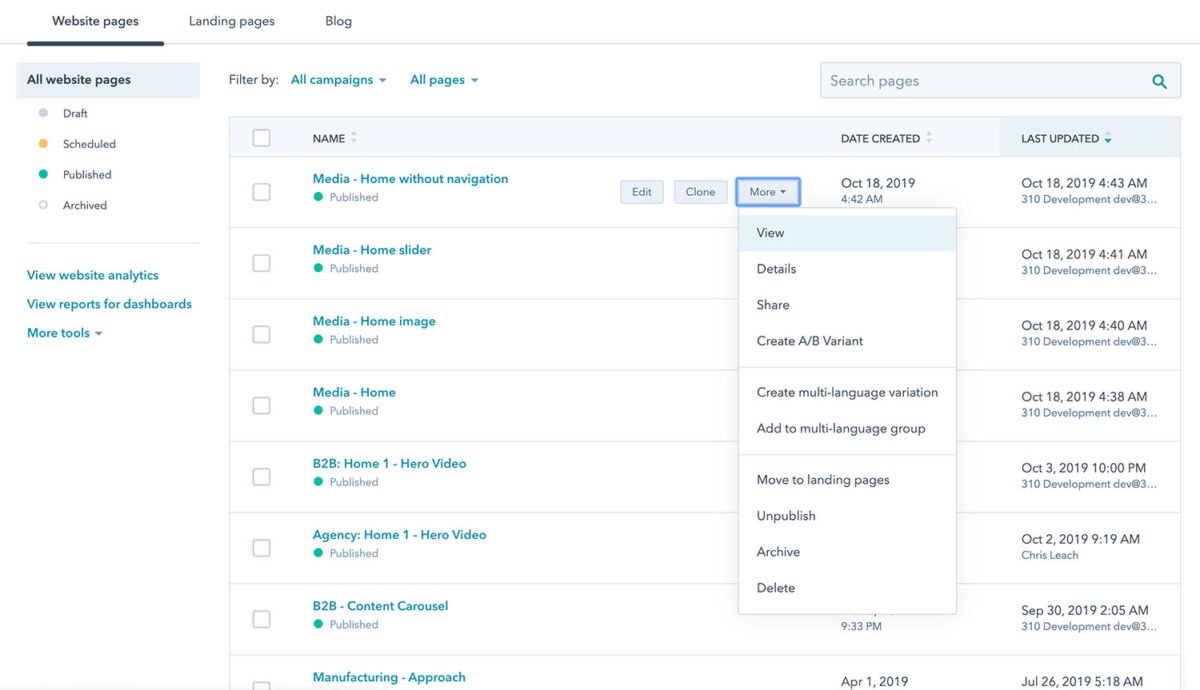
To conduct a thorough and productive review of your HubSpot account, organizing resources efficiently is key. Develop a comprehensive checklist that includes various items to examine. Organize these tasks into folders, allocate them among team members, establish workflows, and set deadlines for the completion of this checklist.
Streamlining the audit process and maintaining clear communication among team members will optimize the outcomes of your HubSpot audit, leading to a more organized, efficient, and effective portal.

HubSpot CRM Portal Audit Checklist
Having a comprehensive checklist for a HubSpot CRM portal audit is crucial for an in-depth assessment. This checklist ought to cover the management of contacts, utilization of leads, examination of deals, and fine-tuning of properties.
Systematic evaluation of these crucial elements ensures that your CRM marketing portal aligns effectively with your marketing, sales, and service departments, leading to increased revenue and enhanced efficiency in business operations.
Managing Contacts
Effectively managing contacts in HubSpot is crucial for ensuring a structured and segmented contact database. Regularly clean up contacts and companies by merging duplicate contacts, clearing the system of unwanted or tag contacts and unused contact properties, and maintaining organization. You can avoid potential issues and ensure accurate reporting, leading to better insights and decision-making.
Reviewing Deals
A thorough review of deals in your HubSpot CRM portal is essential for optimizing your sales efforts. Examine deal stages, deal properties, sales reps, and deal pipelines to ensure they align with your sales process and accurately reflect your business operations.
Optimizing Properties
Optimizing properties during a HubSpot audit is vital for maximizing the effectiveness of your HubSpot CRM portal. Review and update company and contact properties, as well as custom properties, to ensure they are being utilized effectively and efficiently.
Implement strategies to keep costs and prevent property sprawl, such as using "Choosing options" property types over "Text input" where feasible, and ensuring property data is standardized and consistent. A well-organized CRM portal lays the foundation for a successful business operation.
HubSpot Marketing Hub Audit
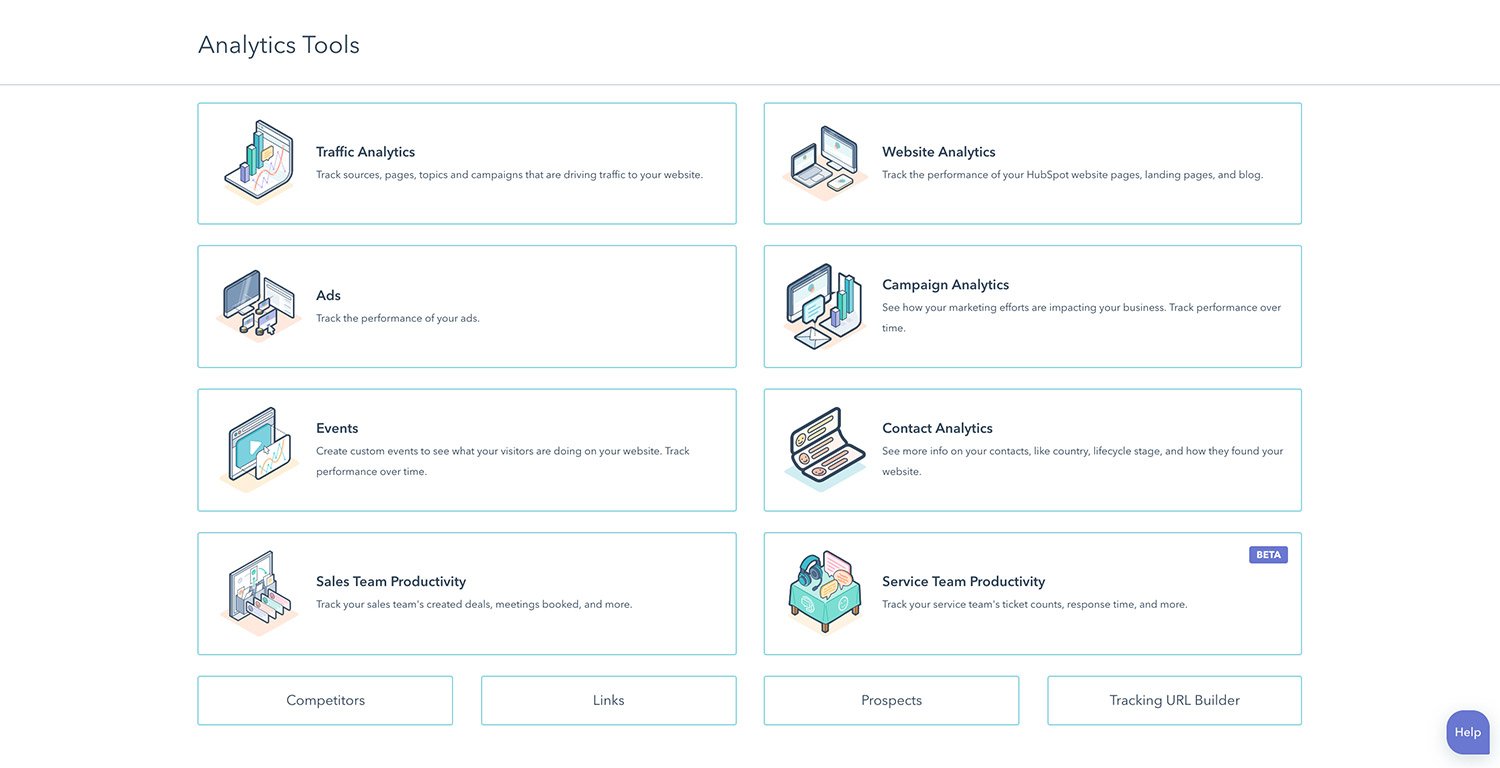
A comprehensive HubSpot Marketing Hub. This particular Hub audit delves into various aspects of your marketing operations, including analyzing website traffic, the conversion rate, evaluating landing pages, blog posts, lead scoring model, workflow automation, and marketing channel performance.
Examining key components helps you better identify key challenges and areas for improvement. You can then implement changes to boost your marketing efforts and drive results.
Analyzing Website Traffic
Evaluating website traffic is a crucial aspect of a HubSpot Marketing Hub audit. Review website analytics, analyze traffic sources, get traffic numbers and assess website performance to gain insights into the effectiveness of your online presence.
Implement strategies to boost website traffic, such as using website pages, enhancing blogging activity, optimizing social media presence and promotions, and monitoring and optimizing for pertinent long-tailed keywords.
Understand your website traffic and its sources so you are in a better position to make informed decisions that enhance your marketing efforts.
Evaluating Landing Pages
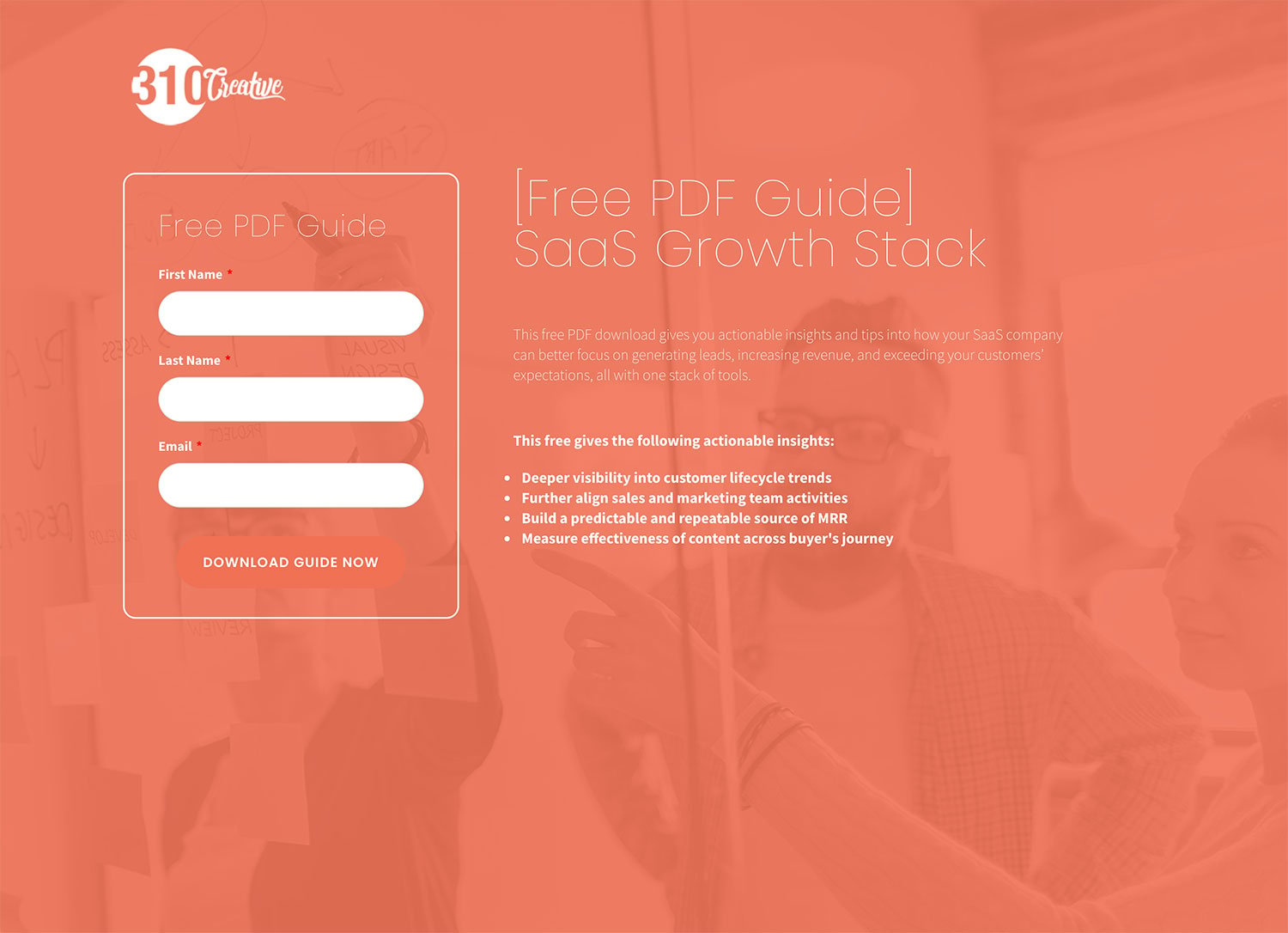
A thorough assessment of landing pages is essential for a successful Marketing Hub audit. Evaluate the design, messaging, and call-to-action of each individual page of your landing pages to ensure they align with your marketing goals and effectively convert visitors into qualified leads.
Optimize your landing page and pages for mobile devices and ensure clear and concise forms for a seamless user experience. By identifying areas of improvement and implementing changes, you can enhance the overall user experience and performance of your landing pages and drive better results.
Evaluating Blog Posts
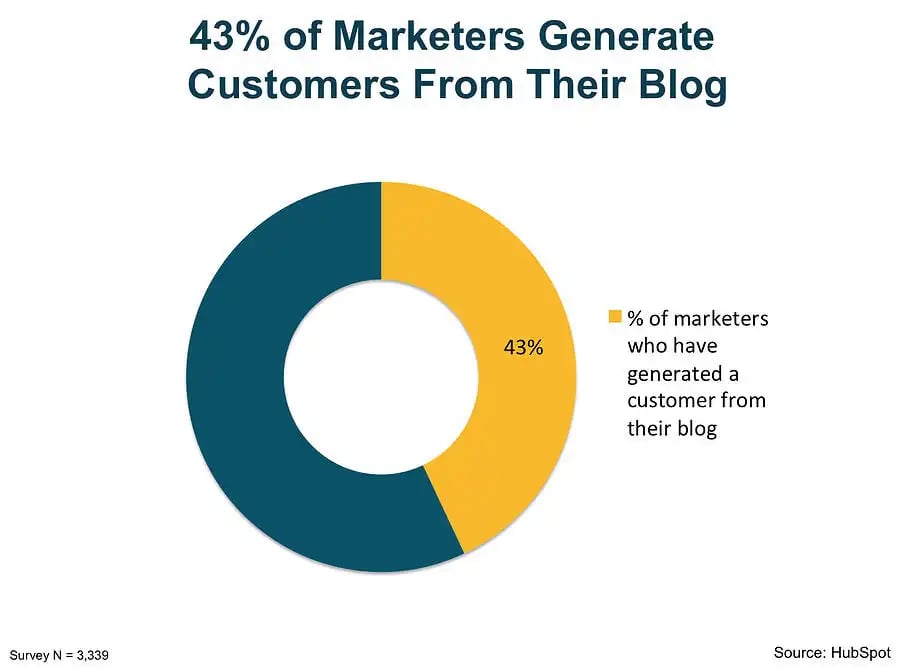
Assessing the quality and performance of your website pages, website content, and your blog posts is an essential step in a HubSpot Marketing Hub audit. Evaluate the accuracy of the information, readability of the content, and use of visuals to ensure your blog posts effectively engage and inform your target audience.
Examine engagement metrics, such as page views, comments, and shares, to identify trends and key takeaways. By understanding the performance of your blog posts, you can make informed decisions to enhance your content strategy and drive better results.
Evaluating Lead Scoring Model

Lead scoring plays a significant role in prioritizing and nurturing leads in HubSpot. During your audit, review your lead scoring model and identify key areas for improvement. Revise lead scoring attributes, taking into account engagement rates and assigning different weights to web pages based on the intent they convey.
Optimize your lead scoring model to better prioritize leads and generate/nurture leads. You'll achieve increased conversions.
Evaluating Workflow Automation
Auditing and streamlining workflows on a regular basis is essential for maintaining an organized and efficient HubSpot account. Review existing workflows, identify any redundant or outdated ones, and delete them to ensure a clean and well-organized HubSpot account throughout.
Verify that all workflows are correctly configured and that all tasks are assigned to the appropriate personnel. By regularly auditing and optimizing your workflow automation, you can enhance the efficiency and effectiveness of your marketing, sales, and service efforts.
Evaluating marketing Channel Performance
Assessing the performance of your marketing channels is essential for making informed decisions and driving better results. Compare data against goals to identify successful channels and those requiring improvement. Leverage the data to pinpoint areas of development, set ambitions and objectives, and monitor progress.
Always take the time to evaluate your marketing channel performance and make data driven decisions. You can then optimize your marketing efforts and achieve your business goals.

HubSpot Sales Hub Audit
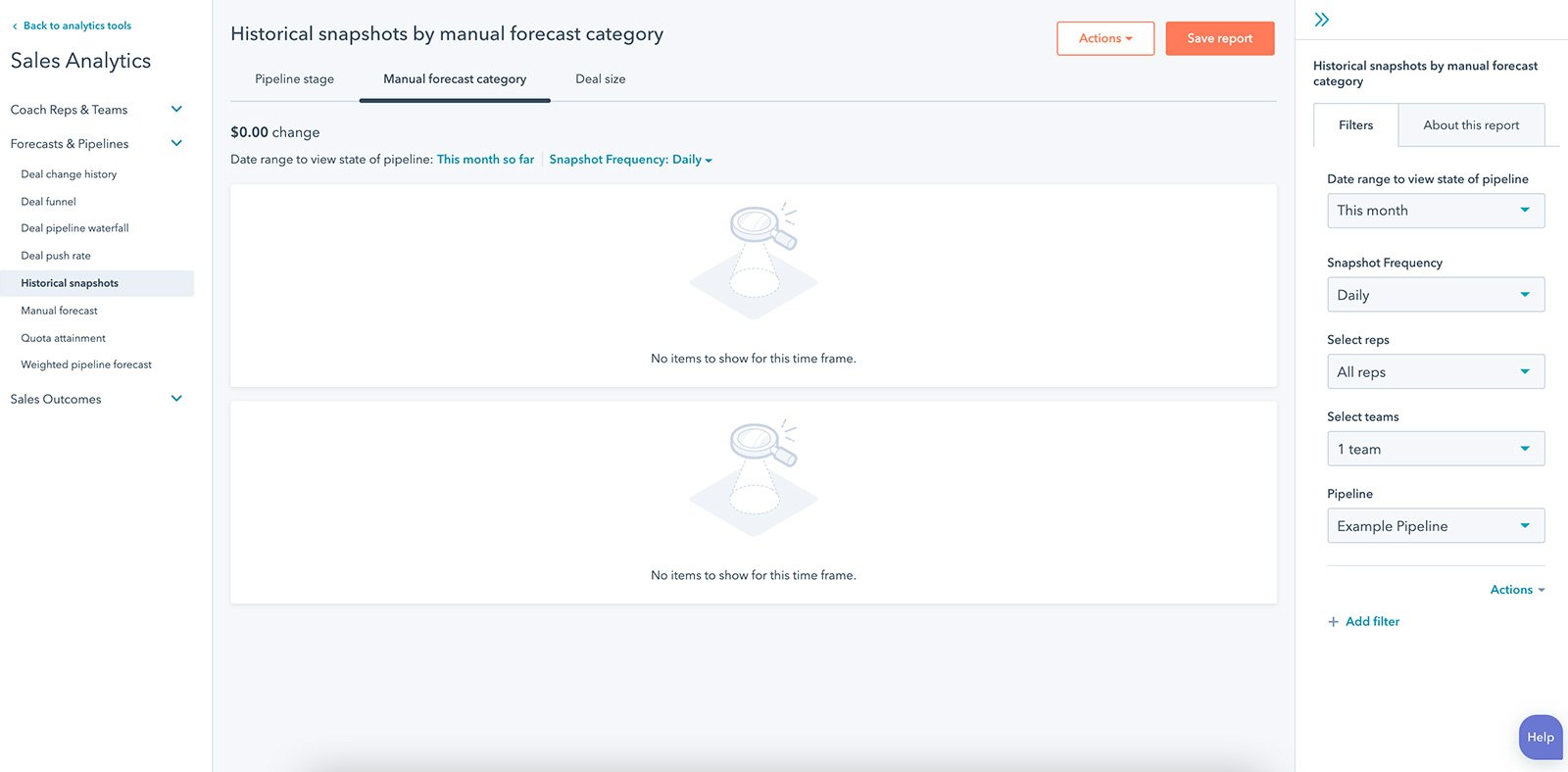
A detailed audit of the HubSpot Sales Hub assesses the various tools and features within the platform, pinpointing areas where improvements can be made to boost overall efficiency.
This process involves scrutinizing deal pipelines, evaluating the effectiveness of pipeline automation, thoroughly reviewing sales pipeline reporting, checking the precision of sales forecasting, and monitoring the performance of the sales team. Such an audit ensures that your sales operations are functioning optimally and effectively.
A well-conducted Sales Hub audit can significantly enhance the efficiency of your sales processes, increase customer satisfaction, and boost the productivity of your sales team.
In-Depth Review of Deal Pipelines
A key component of a comprehensive HubSpot Sales Hub audit is the evaluation of deal pipelines. It's important to closely examine the stages of deals, the properties associated with them, and the overall structure of your deal pipelines. This ensures they are in sync with your sales processes and accurately represent the dynamics of your business operations.
After identifying areas that need improvement you can refine the entire sales process to achieve effective lead management and gain improved outcomes.
Evaluating Pipeline Automation
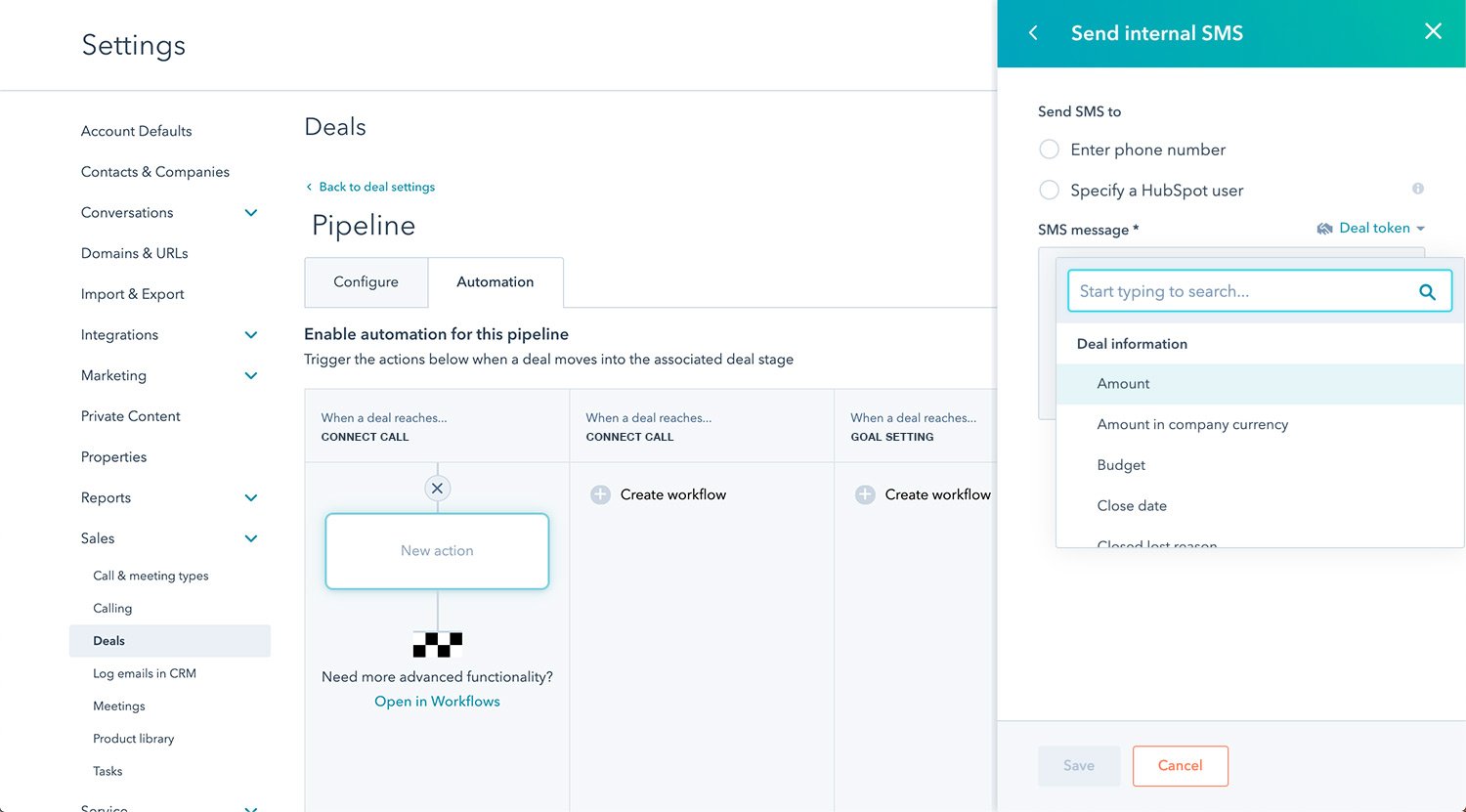
Evaluating Pipeline Automation for Enhanced Sales Efficiency
Thorough assessment of pipeline automation is crucial in fine-tuning your sales processes. Analyze the effectiveness of your pipeline automation, pinpointing any areas that necessitate enhancements or modifications.
Making strategic adjustments based on this analysis can significantly boost revenue generation, streamline sales operations, and foster more effective revenue outcomes.
Rigorous Review of Sales Pipeline Reporting
Conducting an in-depth audit of sales pipeline reporting is essential for a comprehensive understanding of your sales team's performance and the smooth operation of your sales processes. This involves evaluating how your sales team utilizes the Sales Hub, verifying the accuracy of data entries, and scrutinizing key performance indicators. Such a thorough review provides valuable insights into the functioning of your sales teams.
Identify areas that require improvement and then implement appropriate changes to help elevate your sales team's performance and achieve even greater results.
Enhancing Forecasting Accuracy
The precision of forecasting is a critical factor in gauging the prospective success of your sales initiatives. In the course of your Sales Hub audit, examine your sales forecasting methods and compute the Mean Absolute Percentage Error (MAPE) to determine the reliability of your forecasts.
Addressing areas where accuracy can be improved and making necessary adjustments will lead to more precise sales predictions and informed decision-making.
Monitoring Sales Team Performance
Evaluating and improving the performance of your sales team is crucial for achieving superior outcomes. Keep a close watch on key performance indicators, establish explicit goals and objectives, and utilize data-driven insights for informed decision-making.
Understanding your sales and marketing team's performance and implementing changes based on your evaluation can foster a more efficient and effective sales team.

HubSpot Service Hub Audit
A thorough HubSpot Service Hub audit evaluates the tools and packages within the Service Hub, ensuring they are utilized efficiently and effectively. Review ticket pipelines, evaluate knowledge base engagement, and audit surveys to optimize your customer service operations and drive better results.
When you conduct a comprehensive Service Hub audit, you can enhance your customer support efforts and boost customer satisfaction.
Reviewing Ticket Pipelines
Conducting a review of ticket pipelines during a HubSpot Service Hub audit is vital to ensure customers receive effective service and that customer success teams effectively manage the influx of support requests. Identifying areas for improvement and enacting changes can lead to more streamlined customer service processes and a more efficient support operation.
Evaluating Knowledge Base Engagement
Assessing the engagement with the knowledge base during a HubSpot Service Hub audit is key to determining its effectiveness in assisting customers. It's important to evaluate the content's relevance and the overall utility of the knowledge base in supporting customers. Enhancing the knowledge base and optimizing its opportunities can significantly improve service to your customers.
Auditing Surveys
Surveys are crucial for collecting customer feedback and understanding their needs. In the Service Hub audit, it's important to analyze the effectiveness of your surveys and make adjustments for better performance. Regular audits and data-driven modifications to your surveys can deepen your understanding of customer experiences and boost their satisfaction.
Implementing Changes and Improvements
Once you have completed your comprehensive HubSpot audit, it's time to implement the necessary changes and improvements you have identified. By prioritizing updates, tracking progress, and refining your marketing, sales, and service efforts, you can unlock your HubSpot account's full potential and drive better results for your business.
Prioritizing Updates
When it comes to implementing changes and improvements, it's crucial to prioritize updates that will have the most significant impact on your business. Focus on elements such as content that attracts a high volume of visitors but has a low conversion rate, and address any other areas that may require attention.
When you prioritize updates, you can make the most of your audit findings and optimize your HubSpot portal integration for maximum integration success.
Tracking Progress
As you implement changes and improvements based on your HubSpot audit findings, it's essential to track your progress to ensure the updates are delivering the desired results. Monitor key performance indicators, set clear goals and objectives, and use data to make informed decisions about your marketing, sales, and service efforts.
Tracking your progress helps ensure your HubSpot account remains optimized and continues to drive better results for your business.
HubSpot Audit Summary
In conclusion, a comprehensive, HubSpot account audit is essential for optimizing your marketing, sales, and service efforts. By following a well-structured audit process and implementing the necessary changes and improvements, you can unlock your HubSpot marketing portal's full potential and drive better results for your business.
Remain diligent with regular audits and make data-driven decisions so you can ensure your HubSpot portal remains optimized, efficient, and effective. Are you ready to take your HubSpot account to the next level? It's time to roll up your sleeves and start your HubSpot portal audit checklist and journey!

Frequently Asked Questions
What is a HubSpot audit?
A HubSpot audit is a comprehensive analysis of your current setup in HubSpot, examining your account and marketing efforts to help you get the most out of the platform. The comprehensive audit also will help identify areas for improvement and areas where you can optimize your processes to maximize efficiency.
Does HubSpot have an audit log?
Yes, HubSpot has an audit log. You can access it by clicking on the settings icon in the main navigation bar and accessing the Audit Logs page in the Data Management section of the left panel.
From there, you can filter categories, subcategories, actions, and user modifications.
How much does HubSpot audit cost?
The cost of HubSpot's portal audit is $450, and the process will typically be completed in two weeks once access to download your HubSpot portal audit checklist has been granted.
With this comprehensive audit, you can rest assured that your business is utilizing HubSpot's tools to their full potential.
How do I audit a HubSpot CRM?
Auditing your HubSpot CRM is essential to ensure that you are using the software effectively and efficiently. To do so, you should check that all data has been entered accurately, review the data to identify gaps, create a plan to improve your results, delete unwanted contacts, and merge duplicate contacts with duplicates, remove unused contact database properties, and assign contacts to relevant personas.
These steps will help you ensure that your CRM system is up-to-date and organized, allowing you to make the most of the software and get the best results.
How to do an audit on HubSpot?
To audit HubSpot, be sure to capture all of your data, dig into the data, identify any gaps and create a plan to improve. By taking these steps, you can ensure that HubSpot is functioning optimally for your business.


